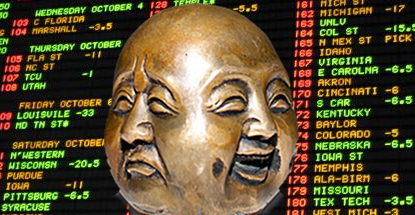New Jersey’s sports betting advocates have filed their last legal briefs ahead of oral arguments before the US Third Circuit Court of Appeals take place on March 17.
The state’s second attempt at passing sports betting legislation would allow wagering at Atlantic City casinos and state racetracks. The state’s opponents – the US Department of Justice (DOJ), four pro sports leagues and the NCAA – have argued that New Jersey can’t selectively repeal the federal PASPA sports betting prohibition, but must adopt an all-or-nothing approach.
In Friday’s filing, New Jersey’s advocates point out that it was the federal courts who originally suggested that states had the authority to define the “exact contours” of their PASPA adherence. The DOJ had previously argued that PASPA was constitutional because it allowed states to repeal its prohibitions “in whole or in part” while the leagues had allowed at least the theoretical possibility that states could prohibit “some but not all forms of sports gambling” without contradicting PASPA’s edicts.
New Jersey also poked holes in their opponents’ arguments that the new legislation “confines sports gambling to state-licensed gambling venues” and thus amounts to the state taking an active oversight role, something PASPA forbids. New Jersey points out that the law would also allow betting to take place on the premises of two closed racetracks – Garden State Park and Atlantic City Race Course – neither of which are currently licensed by any agency of the state.
A separate brief filed by the New Jersey Thoroughbred Horsemen’s Association (NJTHA) attempts a divide-and-conquer strategy by asking whether any of the leagues could individually choose to allow bets to be taken on their games. The NJTHA argues that should (for example) NBA Commissioner Adam Silver strike a deal to allow basketball wagers at New Jersey tracks, the other leagues would “have no basis to seek or obtain an injunction covering other people’s games.”
The NJTHA also argue that the leagues have “unclean hands” via their embrace of daily fantasy sports. Having sworn in court that the integrity of their games would suffer irreparable harm from New Jersey betting, the leagues “invoked federal equitable jurisdiction to prevent others from engaging in conduct that they, themselves, were, and are, actively engaged and from which they make millions.” Such an “unconscionable double standard” reduces the “time-honored doctrine of unclean hands to a dead letter.”
